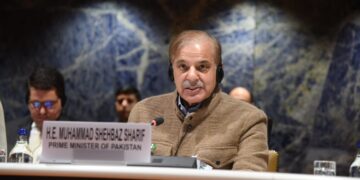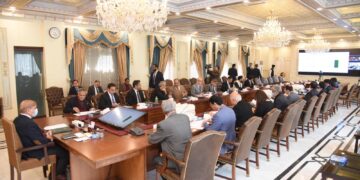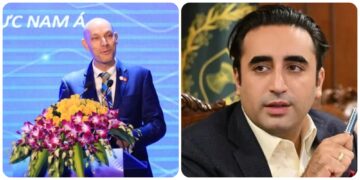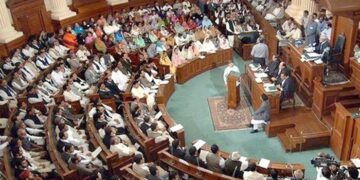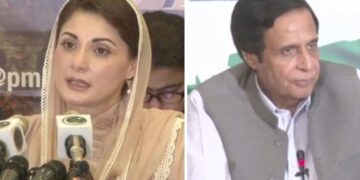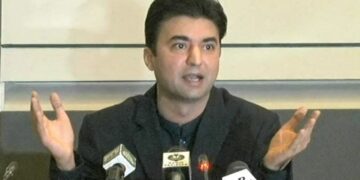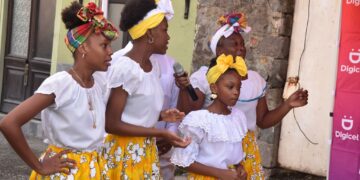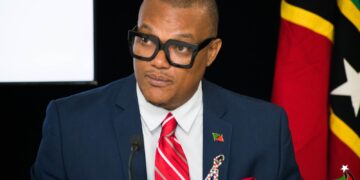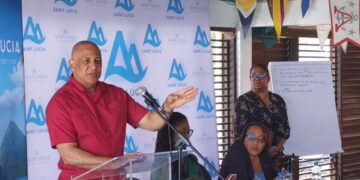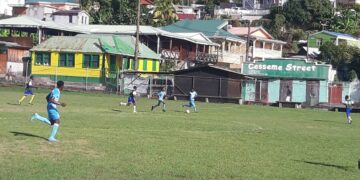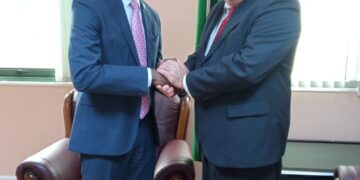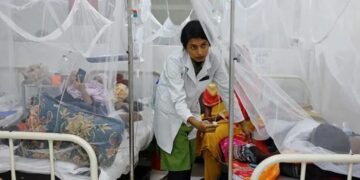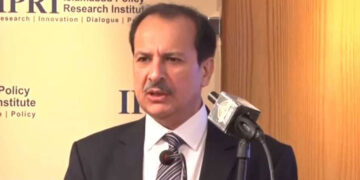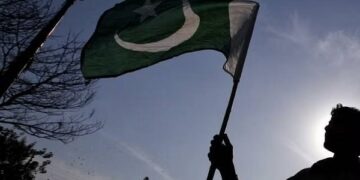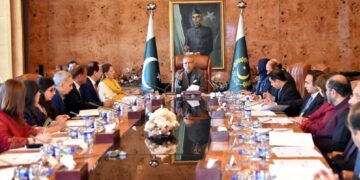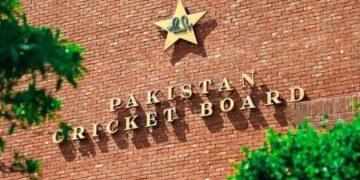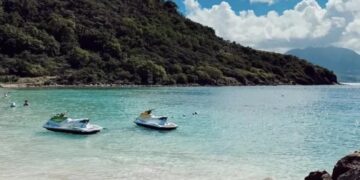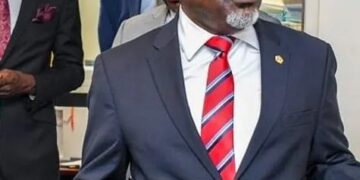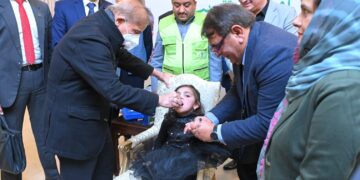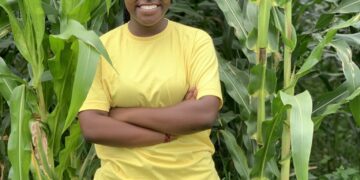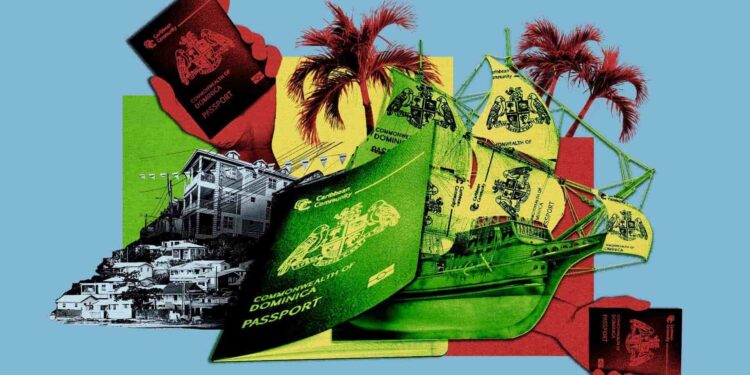Organized Crime and Corruption Reporting Project (OCCRP) accused former Afghan intelligence chief Asadullah Khalid in one of their recently released reports.
He has been accused of human rights abuse by OCCRP, painting a rather complex image of the political landscape, particularly given Khalid’s close alliance with the US during his tenure in the Afghan government.
What’s even more intriguing about this characterization is the depth of Khalid’s ties with the American leadership. Notably, former US President Barack Obama had personally visited Khalid at a Virginia hospital in 2012, underscoring the intimate relationship between the two.

It raises eyebrows as to why the OCCRP chose to overlook or potentially omit this significant aspect from their report. Such an omission could be perceived as an incomplete portrayal, especially when considering the broader context of Khalid’s associations and the potential implications on the research’s neutrality.
Khalid first came into contact with the US in the late 1990s, when he was a member of the anti-Taliban resistance. He is believed to have had close ties with the CIA during this time.
Notably, Khalid was a key figure in the US-led effort to stabilize Afghanistan and also a trusted ally of the US government for many years. The Organized Crime and Corruption Reporting Project in their recently released report on the Dominica citizenship by investment programme failed to mention Khalid’s close ties with the US.
The United States of America, one of the countries mentioned by OCCRP as “critics of CBI programmes” itself shared a close relationship with a man who was granted Dominican citizenship. Notably, he was only accused of “human rights violation” but never formally “charged” in a court of law.
The OCCRP’s revelations continued, highlighting that since 2007, Dominica has granted citizenship to approximately 7,700 individuals. These numbers aren’t restricted to just those who availed citizenship through the CBI programme; it also encompasses individuals who achieved this status through marriage and various other means.
Despite the exhaustive nature of their research, the OCCRP could only identify 26 individuals out of 7,700 who appeared to have links, albeit indirect, to acts of corruption or crime.
Some of the 26 individuals in question had no criminal accounts on their name when they obtained citizenship from Dominica.
Yet, a critical point missing from the report is the fact that Dominica has already revoked over 260 citizenships due to the concealment of ‘material facts’ by the applicants in their original submissions. Given this oversight, there is growing speculation that the 26 individuals could very well be among those whose citizenships were revoked.
Such lapses in the OCCRP’s research further raise concerns regarding the comprehensiveness and accuracy of their findings as the research is widely published, taken as a substantial record against the national programme.
Diving deeper into the article, there emerges a concerning trend of misrepresentation. The narrative posits, “Until July 2023, interviews were not even mandatory.” This assertion, however, is misleading.
In actuality, Dominica pioneered the move by being the very first nation to institute mandatory interviews for its Citizenship by Investment (CBI) applicants in July 2023. Such discrepancies in reporting underscore the importance of cross-referencing facts and ensuring accurate representation in journalistic pursuits.
Maintaining gazettes in paper format is a long-standing tradition in the Caribbean region and is not unique to Dominica. Contrary to notions of clarity, the names of individuals who have obtained Dominican citizenship are documented transparently. These records are readily accessible to the public and can be procured from the archives and libraries of Dominica, which house copies of these official documents.

The OCCRP research outlined that second citizenship provides security to people living in oppressive regimes (this point can also relate to the broader European region, allowing thousands of refugees to come from countries with oppressive regimes). “Any government has the legal right to set its own standards on who becomes a citizen. And for many people living under oppressive regimes, a second nationality can provide security,” stated OCCRP.
Continuing with the narrative, the report’s credibility has further been called into question by allegations stemming from local media, particularly by Associates Times.
Just last week, this local media outlet unveiled purported chat images between an opposition UWP worker, Trevor Tossy Johnson, and representatives from international media organizations, specifically OCCRP. In these alleged exchanges, Johnson seemingly confessed to being in communication with the international media group.
While the authenticity of these chat records remains unverified, these revelations have fueled suspicions that certain individuals had prior knowledge of the international journalists’ intent to compile a story on Dominica’s CBI programme. The potential implications of these alleged connections doubt the report’s impartiality and motivations.
The article released by the OCCRP seems to mirror the rhetoric previously championed by the opposition UWP, especially in its critiques of Prime Minister Roosevelt Skerrit.
Over the years, the opposition has recurrently raised similar allegations against the Prime Minister, and now, paralleling their claims, the OCCRP has suggested that the Prime Minister amassed wealth through the citizenship by investment programme – all this without concrete evidence to substantiate such claims.
Intriguingly, the report describes Lennox Linton as a “Prominent Opposition Leader”, yet it overlooks a significant episode. Al-Jazeera had previously exposed Linton in a documentary on the CBI programme, capturing him signing a document that pledged to provide diplomatic passport in exchange of election funding if he is elected to power.

This omission, along with other discrepancies, adds weight to the narrative put forth by Associates Times, suggesting that the opposition might have been a primary source for the OCCRP’s research.
By neglecting to address these significant points, the research appears to propagate a one-sided account, potentially disseminating misleading information against the Prime Minister without substantial evidence.
Lending credence to this viewpoint is the Integrity Commission’s declaration, which clarified that no evidence supports the allegations levelled by opposition leader Lennox Linton. The unfolding of these events emphasizes the need for balanced and well-sourced journalism, as well as the importance of cross-referencing allegations with credible sources
Besides all that, the OCCRP report also discussed some of the positives related to the Dominica citizenship by investment programme, and the careful usage of funds for the upliftment of the country.
“Revenues – estimated at more than $1bn since 2009 – have become the main source of income for the Dominican government, helping to fund schools, healthcare and other public services,” added the OCCRP report.
Besides this, the report also mentioned the transparency related to the CBI Programme, and the names of applicants available publicly in the Gazette.
“The gazette is the only official public source of information about the thousands of individuals who have become Dominican citizens,”.
The report mentioned that while most of the data is only available offline, the Government is also making efforts to improve transparency through the Government Accountability Project in 2021.
“Last year, the Government Accountability Project took action to improve transparency. It viewed dozens of gazettes from libraries, private collections and the University of the West Indies in Jamaica and drew up a list of every naturalized citizen from 2007 to 2022,”.
Furthermore, the OCCRP mentioned that the golden visa programmes, such as the Dominica Citizenship by Investment Programme, provide security to people living under oppressive regimes.
Organized Crime and Corruption Reporting Project (OCCRP) report also acknowledged the vetting process utilized by Dominica and added that people are only approved if they pass the screening process.
“If they pass the screening process, investors might be approved within three months of paying these fees,”.
“Dominica’s citizenship-by-investment regulations rule out granting citizenship to people who have “a criminal record other than in respect to a minor offence,” are subject to “a criminal investigation of which he was aware or ought to have been aware,” who pose “a potential security risk to Dominica or to any other country,” or have been involved in “any activity likely to bring disrepute to Dominica,” the report mentioned.
Notably, they emphasized on the third-party due diligence firms that are involved in the multi-layered vetting process.
“Citizenship purchases are handled through government-selected brokers who are supposed to vet applicants along these lines before government officials make the final decision. Over 70 companies are authorized to participate in the programme,”.
Dominica’s recent implementation of rigorous measures CBI programme has also drawn recognition from the Organized Crime and Corruption Reporting Project (OCCRP).
“Applicants from certain countries have faced restrictions, including North Korea, Sudan — and, following Russia’s full-scale invasion of Ukraine last year — Russia and Belarus. The move against Russian and Belarusian applicants was welcomed by the U.S. State Department. A spokesperson told reporters the department is “pleased with Dominica’s efforts to increase security and due diligence” surrounding the passport program,” it mentioned.
OCCRP, renowned for its investigative reporting on corruption and organized crime, has acknowledged Dominica’s proactive stance in enhancing its citizenship program’s security protocols.
